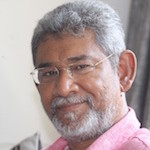The outcome of the presidential election of January 2015 created expectations of change, hope and reform among considerable sections of Sri Lankan society. For Muslim communities, who played a pivotal role in the election, the change in Government was willed into being in part due to the insecurity and violence suffered by Muslims particularly in the South of the country over the last two years. As indicated by the compilation of incidents carried out by the Secretariat for Muslims (SFM) from 2013 onwards, Muslims faced a hate campaign that has resulted in violence and tension, including damages to mosques and private properties, harassment and injuries to individuals and even deaths. This campaign that was carried out through a variety of methods, including direct violence, demonstrations, speeches, social media and the mainstream media had multiple impacts not just for Muslim communities but the country at large, raising serious concerns relating to the equality before the law, the lack of law enforcement, impunity and national identity. Above all it questioned the commitment of the then Government to both arrest the violence and perpetrators of the hate campaign such as the Bodu Bala Sena (BBS), and deal with the underlying culture of hate. The hate campaign played a significant role in mobilizing the Muslim community, including many of the Muslim members in Parliament, to vote for Maithripala Sirisena, in the expectation that his Government would bring about positive change. The election of January 8th created a palpable sense of security for the Muslims, especially in flashpoint areas which had seen violence in past months and had become the focus of Sinhala Buddhist extremist groups.
 Over the last four months the Government has made a number of symbolic gestures and statements as to how this new Government differentiates itself from its predecessor, not just with regards to the hate campaign but also the ethnic conflict. President Sirisena has made repeated pledges and requests for a shift in the politics of this country, including at the SLFP convention on March 17 where he stated that the SLFP was “not a Sinhala Buddhist party” and for its members not to engage in racist politics. While the Government has yet to announce frameworks for addressing critical post-war issues, it has acknowledged the need for reconciliation. At the Independence Day celebrations, the President pointed out that “the biggest challenge we face today, is that of bringing together the minds of the people of the North and South, and through a process of reconciliation bring about co-existence and national understanding.”[1]
Over the last four months the Government has made a number of symbolic gestures and statements as to how this new Government differentiates itself from its predecessor, not just with regards to the hate campaign but also the ethnic conflict. President Sirisena has made repeated pledges and requests for a shift in the politics of this country, including at the SLFP convention on March 17 where he stated that the SLFP was “not a Sinhala Buddhist party” and for its members not to engage in racist politics. While the Government has yet to announce frameworks for addressing critical post-war issues, it has acknowledged the need for reconciliation. At the Independence Day celebrations, the President pointed out that “the biggest challenge we face today, is that of bringing together the minds of the people of the North and South, and through a process of reconciliation bring about co-existence and national understanding.”[1]
In addition to statements, the new Government has taken a number of measures to restore and strengthen democracy and the rule of law as promised in the ‘100-Day Plan.’ While some promises have been delayed and/or not fully implemented,[2] efforts to reform the Constitution, most notably the system of governance, and to strengthen the rule of law, including reinstating the 43rd Chief Justice, Shiranie Bandaranayake and initiating a series of investigations into corruption and other crimes have helped to restore public confidence in State institutions. Some of these reform processes lack transparency, have been rushed through with little or no public dialogue and participation, and represent significant compromises. Coupled with the delays and gaps between promises and implementation these developments have increased public cynicism as to whether this Government is fully committed to introducing good governance and improving the status quo.
In dealing with fundamental post-war issues of reconciliation and accountability, the new Government has signaled that it is approaching these issues through a fresh perspective, but there continues to be lack of clarity as to how these processes are moving forward, while on the ground the victims continue to find little recourse. The Government announced that some land held by the military would be released in Valikammam, Sampur and Panama, but each release has its own set of problems that have meant those attempting to return have been delayed or have not been provided the resources to rebuild their lives, homes and livelihood. As noted by SFM, there are a number of other locations of military occupation continues to hamper post-war recovery and amounts to a denial of rights.[3] The Government reinstated the past practice of permitting the national anthem to be sung in either Sinhala or Tamil.
An important development took place on May 26th when the General Secretary of the BBS, Galagoda Aththe Gnanasara Thera was arrested by the police on a court warrant. He was later released on bail but made clear that at the very least that this group would not enjoy the level of immunity that it enjoyed in the past. This has been a long standing demand of Muslim groups and civil society organizations that the State should use the systems of law and order to investigate and to prevent communal violence. Heavy police presence and action at key demonstrations at sites such as Kuragala/Jeylani in the last few months, also minimized or even thwarted violence, highlighting the importance that the restoration of the rule of law is to enjoying peace, security and stability, whereas during the past administration there were serious concerns about the inaction or even complicity of State actors in the lead up to and during violence.
As this compilation of incidents of hate speech and actions against Muslims that have been documented in the mainstream and social media, make clear this period from January to April 2015 has seen a continuation of incidents. This reinforces concerns that even though there has been a change in Government the actors involved in these acts of hate are still at large and the culture of hate and violence that was unleashed has not completely receded. In total there have been 37 incidents in the first four months of 2015. This is a decline in the total number of incidents as compared to the last four months of 2014 (48). Jeylani/Kuragala Mosque has become a critical site of dispute in the last few months, with some of the key Sinhala Buddhist extremist groups such as BBS and Sihala Ravaya organizing protests and making ultimatums regarding the site. The latter group also threatened to commit mass suicide if Muslims are not evacuated from Kuragala. This location is currently a protected archeological site and is shared by Muslims and Buddhists. That the BBS is incriminated in approximately one third of the incidents between January and April (13) makes clear the threat the group continues to pose.
The political context remains highly charged and dynamic, with the stability of this current government also being uncertain. The use of a flag depicting the lion from the national flag without the stripes for the minorities at a rally outside the Bribery Commission by key members of UPFA and the SLFP on April 23 represented flagrant disrespect of the Constitution but also demonstrated the willingness of those supporting the Rajapaksas to use divisive communal politics to mobilize support.[4] Figures in the Government and in civil society condemned this act, and an apology was later extended by some of the high profile protestors for using the flag but it once more highlights questions of the very identity of post-war Sri Lanka and the place of minorities. These mainstream politicians appear to be echoing sentiments expressed by groups such as the BBS and Sihala Ravaya who have highlighted the exclusive claim of Sinhala Buddhist to the island. In February one group, Sinhala Jathika Peramuna publicly claimed that Sri Lanka “does not belong to Sri Lankans, but to the Sinhalese.”[5] With the coming general election, there are concerns that both during the election and possibly its outcome could create a context for a re-launching of a hate campaign and even violence against minorities. The campaign to seek new positions of power for the defeated and previous President Rajapaksa has seen increasingly racist undertones, particularly focusing on the Tamil community.
At the Independence Day celebrations this year the new Government presented a Pledge for Peace that highlighted key goals:
“On this solemn occasion we pledge to adopt consensual approaches through democratic means, to advance national interest, national reconciliation, justice and equality for all citizens. We shall do this in a spirit of tolerance, accommodation and compromise and uphold the unity and territorial integrity of the nation for the progress and development of our pluralistic society.”
From May to July the country recorded a number of anniversaries of mass violence, not all of which are officially commemorated. The sixth anniversary of the end of the war, the thirty second year since Black July along with the century commemoration of the 1915 Riots in May and the one year anniversary of the Aluthgama Violence should serve as reminder of the urgent need for introspection as to how to move forward by tackling fear, distrust, and hate, in order to create, as highlighted in the pledge, an acceptance of values of democracy, justice, peace and pluralism.
Hate incidents against Muslims – January to April 2015
(Threats, attempts to attack, attacks, harassment, inciting, warning, violence, provocation, etc. against Muslims)
- January 03, 2015 – Kirulapone, Colombo District: Ven. Gnanasara calls Justice Minister Hakeem a pariah: Gnanasara when speaking at a meeting organized by Bodhu Bala Sena (BBS) in support of Mahinda Rajapakse, in Kirulapone said “Hakeem is a pariah! I clearly tell this, he is a pariah. I have told media that he is a prostitute. He is cheaper than those prostitutes. They (prostitutes) are more respectable than Hakeem. We remember that a few years back he signed an agreement with Norway and crossed over to opposition for money when 137 Muslims were massacred by LTTE in Muttur’. At that time, he criticized the Sinhala army for doing that. During the last election he talked of ‘yellow robe terrorism’. He is in the habit of feeding poisonous racism to garner votes. Rishad Bathiudeen and Faizer Mustafa are no different than him. Whoever comes to power, we will take care of these guys”.“Have we ever talked about and targeted traditional Muslims? During Aluthgama riots extremist who attacked Sinhala Buddhist four times and groups who insulted Buddhism have also joined Maithripala Sirisena. I ask the JHU leaders how they plan to achieve a Pivithuru Hetak (a clean tomorrow) and develop a good society by joining Rauff Hakeem, Rishad Bathiudeen, Mujeebur Rahman, Azad Salley, Thawheed Jama’at, Ikhwanul Muslimeen and Jama’at e Islami?”, he queried.
https://www.youtube.com/watch?v=HTfPCVuWhuo (Starts from Minutes 22)
- January 04, 2015 – Nationwide: We are only against fundamentalism – Ven. Gnanasara: In an interview with Irida Lankadeepa, Ven. Gnanasara stated “We only talk about religious fundamentalism and pointed our finger at them. We did it during Chardrika’s period also. There were no issues between Sinhalese and Muslims until the appearance of groups like the Thawheed Jama’at. Has anyone ever heard of Lord Buddha being referred to as a cannibal and that the ‘Triple Gem’ is just three pieces of stones? Traditional Muslims have never insulted Buddhism. We have identified who these groups are. We are disclosing the nature of extremists and racist Muslim leaders. These people instilled a fear into the minds of Muslims as if the BBS is going to massacre them”. He further said “if BBS had attacked Muslims, mosques, or business establishments, the police and other law enforcing bodies are there to inquire into it.”
Lankadeepa (page 10) January 04, 2015
- January 04, 2015 – Nationwide: Those who left us are separatists – President: President Mahinda Rajapaksa during an exclusive interview with ‘Deshaya’ newspaper said that Muslim and Tamil separatist factions who demanded separatism have left the government since the government was not ready to divide the country. Furthermore, President Rajapaksa claimed that the Muslim Congress who was demanding a separate district and Tamil separatist factions had joined the opposition due to the rejection of their separatist proposals.
Deshaya (page 1) January 04, 2015
- January 04, 2015 – Nationwide: BBS Advertisement aimed at forthcoming Presidential election: BBS full page advertisement appeared on Sunday Lankadeepa newspaper which reads as fellow. “O! Sinhala Buddhist! Awaken and unite! The Opposition’s manifesto and agreement are dangerous. Do not allow racists, separatists and minority powers/ politics to decide the leadership of the country. Let’s defeat the force that will pay ransom to extremists, those who put the unitary state and the wellbeing of motherland into jeopardy, and the international conspiracy. Cast your vote diligently.”
Lankadeepa (page 12) January 04, 2015
- January 05, 2015 – Nationwide: Media briefing – Maithripala Sirisena’s Manifesto based entirely upon Muslim extremism and Christian fundamentalism – BBS: Speaking to the media in Colombo, BBS CEO Dilanthe Withanage stated “the common opposition candidate Maithripala Sirisena’s Manifesto was based entirely upon Muslim extremism and Christian fundamentalism. Factions of Christian fundamentalists, Muslim extremists and other NGOs are implementing their own agendas through this manifesto”.
Ceylon Today (page 3) January 06, 2015, Daily Mirror (page 6) January 06, 2015
- January 11, 2015 – Nationwide: Media briefing – We will never abandon our struggle – BBS : Gnanasara asked what the present government’s stand on Halal, Sharia banking, Niqab and so on is. He also criticized Azath Salley and Mujibur Rahman, and demanded to know from the present government whether an inquiry would be made about people who said the Buddha is cannibal. In addition, they wanted to know if those who are destroying Wilpattu forest and grabbing land in Mannar will get punished.
https://www.youtube.com/watch?v=nk99nA9r4W0#t=13
http://tamilnewslk.com/show-RUmtyBSXKbfty.html
https://www.youtube.com/watch?v=vewRKNJHWqA
- January 13, 2015 – Public Library, Colombo District: Muslim fundamentalism is a threat to the country: When speaking at a book launch “Anthawadaye Beeshanaya” (A book ‘Terror of Extremism’ by Chatura Pamunuva, a journalist of Divaina newspaper) at the Colombo Public Library Auditorium Gnanasara said “Muslim fundamentalism is a threat to Sri Lanka, and when the BBS discloses these facts we are being targeted”.
Divaina (page 14) January 14, 2015
- January 20, 2015 – Nationwide: Media interview – BBS got the inspiration from RSS and BJP – BBS: Speaking to The Indian Express, the BBS CEO Dilanthe Withanage said that his group is inspired by the BJP and RSS (of India) and that it would soon launch “a party modeled on these Indian ventures to protect Buddhist culture in Sri Lanka”. “We have a very positive understanding with Modi,” Withanage said. “We admire him as a leader. Unofficially, there have been personal relations and talks with RSS and BJP leaders. We will soon launch active political talks with our Indian counterparts.” Claiming that the portrayal of BBS as a religious terrorist organization was similar to the situation faced by Modi when he was Chief Minister of Gujarat during the 2002 riots, Withanage said, “We are not against any religion. We don’t spread hatred against anyone. But it’s true that we do deliver hard speeches on certain truths that we believe in, to protect Buddhist values in Sri Lanka.” He added that what his organization does in Sri Lanka for the majority Buddhist religion “is inspired by what the RSS and BJP do in India”. “There are lots of similarities between India and Sri Lanka,” Withanage said. “Both of us face threats from Muslims and minorities who are actively engaged in conversions. When Sinhalese families have a child or two, minorities have half a dozen or more. When foreign money plays behind such activities, we need to resist. So Modi and his party is a great inspiration for us,” he added.
http://indianexpress.com/article/india/politics/hardline-lanka-buddhists-to-launch-party-say-inspired-by-bjp-rss/2/#sthash.CBloiL7z.dpuf
Dilantha Withanage claims that Gotabhaya, then the defence secretary, helped BBS – “We know him very well. He collected the right information from the army intelligence that favoured us.”
- January 20, 2015 – Nationwide: Media briefing – Separate administrative district will lead to division – Ven. Gnanasara: Answering to a question raised by a media person related to separate administrative district Ven. Gnanasara said “Muslims in Colombo and suburbs live peacefully, do they ask for separate administrative unit? We are against racism. The concept of so called good governance of the new government will ultimately lead the country towards division as Sinhala speaking and Tamil speaking like what happened in Sudan”.
The BBS Attempts To Undermine President Maithripala's Government And Attempts To Spread Fear Among Sinhalese Buddhists
Posted by SL Racism Watchdog on Friday, January 23, 2015
- February 01, 2015 – Dehiwala, Colombo District: Muslim owned business place stoned: ‘Nawalanka Super City’ in Allen Avenue, Dehiwala a Muslim owned business place where items like hijab were sold, was stoned early morning today shattering its window glass front by unknown persons. The owner of the shop while explaining said that the previous evening a Sinhalese person had cast some critical comments to a Muslim lady customer who had been in hijab in the shop. On a complaint regarding this by the lady the management had questioned the person. This had led to an argument. Subsequently, the person had threatened the management whilst wielding a knife and said “see what will happen to your shop” and gone.
http://madawalanews.com/58605, http://vidiyal.lk/%E0%AE%AA%E0%AE%BF%E0%AE%B0%E0%AE%A4%E0%AF%87%E0%AE%9A%E0%AE%AE%E0%AF%8D/%E0%AE%AE%E0%AF%87%E0%AE%B2%E0%AF%8D- %E0%AE%AE%E0%AE%BE%E0%AE%95%E0%AE%BE%E0%AE%A3%E0%AE%AE%E0%AF%8D/5390-%E0%AE%85%E0%AE%AA%E0%AE%BE%E0%AE%AF%E0%AE%BE-%E0%AE%B5%E0%AE%BF%E0%AE%B1%E0%AF%8D%E0%AE%AA%E0%AE%A9%E0%AF%88-%E0%AE%9A%E0%AF%86%E0%AE%AF%E0%AF%8D%E0%AE%AF%E0%AF%81%E0%AE%AE%E0%AF%8D-%E0%AE%9A%E0%AF%81%E0%AE%AA%E0%AF%8D%E0%AE%AA%E0%AE%B0%E0%AF%8D-%E0%AE%9A%E0%AE%BF%E0%AE%9F%E0%AF%8D%E0%AE%9F%E0%AE%BF-%E0%AE%AE%E0%AF%80%E0%AE%A4%E0%AF%81-%E0%AE%95%E0%AE%B2%E0%AF%8D%E0%AE%B5%E0%AF%80%E0%AE%9A%E0%AF%8D%E0%AE%9A%E0%AF%81
- February 10, 2015 – Nationwide: Media briefing – Will start our struggle again from Kuragala – BBS: Gnanasara at the media briefing held in Colombo criticized former President Chandrika Bandaranaike Kumartunga for making a speech at Thihariya against BBS which he alleged that will encourage extremist forces in this country. “An organization called the Shoora Council conducted a programme at Independence Square where once again she made derogatory comments against the BBS. We have waited enough; we will start our struggle again from Jailani[6] Kuragala.” he said. Dilanthe Withanage, stated that the National Shoora Council has been given unnecessary privileges and positions; and called for a competent authority to “look into its formulation, funding and financial transactions, links and the individuals involved including their relationships. Meanwhile, the BBS will file a lawsuit again Minister Rauff Hakeem,” he said. Commending the government for amending the United Nations Act No. 45 of 1968 to ban the Al-Qaeda and the Taliban, Withanage said that “The government has acknowledged the truth and depth of what we have been talking about since 2013 for which we were labeled racists and extremists inciting religious tensions, challenging religious freedoms and discriminating against minorities. MPs and political leaders are ignorant about this issue. We must protect moderate, traditional Muslims from this scourge.” Speaking further, the BBS also called for the niqab to be banned. “niqab must be banned in public places and on public transport as it is a danger to national security since one can conceal weapons and materials underneath. Muslim terrorists are also engaged in drugs and weapons smuggling and human trafficking,” he added.
http://ceylontoday.lk/51-84608-news-detail-bbs-to-file-suit-against-hakeem.html
- February 17, 2015 – Nationwide: Media briefing – Muslim extremism nourished at mosques – Ven Gnanasara : “If anyone thinks that they can continue with their Muslim extremist activities after electing Maithripala Sirisena, they will never get that opportunity”, Ven. Gnanasara said at media briefing held in Colombo today. “We will never allow Buddhist ideology to get destroyed. Muslim extremism is being nourished at mosques. This will have great impact. They’re challenging us without knowing who we are. They are trying to hunt us because we are silent, the Muslim separatist leaders must keep in mind that we are like lions, if they rouse our anger the repercussion will be very serious”, he added. “Muslim separatists are totally responsible for what happened in Aluthgama, but we were blamed for it”, Ven. Gnanasara noted. “Giving preference to Islamic law in this country is unacceptable. Similarly Islamic law about dress is terrible; it is awkward to see women walking around with their faces covered; it is frightening too”, he added.
http://www.virakesari.lk/articles/2015/02/19/%E0%AE%85%E0%AE%9F%E0%AE%95%E0%AF%8D%E0%AE%95%E0%AF%81%E0%AE%AE%E0%AF%81%E0%AE%B1%E0%AF%88%E0%AE%95%E0%AE%B3%E0%AF%88-%E0%AE%95%E0%AF%88%E0%AE%AF%E0%AE%BE%E0%AE%B3-%E0%AE%A8%E0%AE%BE%E0%AE%AE%E0%AF%8D-%E0%AE%92%E0%AE%B0%E0%AF%81%E0%AE%AA%E0%AF%8B%E0%AE%A4%E0%AF%81%E0%AE%AE%E0%AF%8D-%E0%AE%B5%E0%AE%BF%E0%AE%B0%E0%AF%81%E0%AE%AE%E0%AF%8D%E0%AE%AA%E0%AE%B5%E0%AE%BF%E0%AE%B2%E0%AF%8D%E0%AE%B2%E0%AF%88 , http://madawalanews.com/60681
http://www.jaffnamuslim.com/2015/02/blog-post_742.html?spref=fb
13. February 23, 2015 – Balangoda, Ratnapura District: We will not allow these infidel Muslims to run riot in Kuragala – BBS: The Bodu Bala Sena (BBS) has requested a meeting with the government, to call for the Antiquities Ordinance to be enforced with regards to the Kuragala monastery. The Kuragala monastery dates back even before 2nd century BC and is considered a national treasure. “We will not allow these infidel Muslims to run riot in Kuragala,” Ven. Gnanasara recently stated. The BBS had previously threatened that if the Antiquities Ordinance was not enforced within a month, they would remove the Sufi mosque within the premises brick by brick. (Please refer incident number 11 – February 10, 2015)
Posted February 23, 2015
http://www.ceylontoday.lk/51-85540-news-detail-bbs-to-meet-govt-about-kuragala.html
14. February 26, 2015 – Nationwide: Media briefing – This country does not belong to Sri Lankans but to Sinhalese: “Red was the only color which prevailed in the national flag of Sri Lanka to denote that this is a Sinhala country; and other two colors denoting Tamils and Muslims must be removed from it”, said the leader of Sinhala National Front Ven. Gallage Punniyawardana. He told this at the media briefing held in Colombo today. He further said that he will go on a protest march from Colombo to Kandy and remove the flag from Naga Vihara which gives recognition to three communities and replace it with one that gives recognition only to Sinhalese. This country does not belong to Sri Lankans but to Sinhalese, he emphasized.
Virakesari (page 8) February 27, 2015
- March 02, 2015 – Kandy, Kandy District: Attempt to hoist the ‘Sinhale Flag” at Dalada Maligawa: A tense situation was reported in Kandy today when the Sinhala Jathika Peramuna (Sinhala National Front) and Swarna Hansa Foundation organized a commemorative ceremony to mark the hoisting of the national flag 200 years ago by Ven. Wariyapola Sri Sumangala at the Sacred Temple of the tooth in Kandy. A group of extremists including few Buddhist monks, tried to remove the Sri Lankan National Flag hoisted inside the Sri Dalada Maligawa by force and attempted to hoist the ‘Sinhale Flag’ instead. A police team attached to the Kandy Police prevented this from happening, and the police media unit states that investigations have been initiated into these incidents. Many ‘national organizations’ including the Sinhala National Front and the Bodu Bala Sena have declared several times that the country’s name should be changed to ‘Sinhale’ instead of Sri lanka and that the green and saffron stripes in the National Flag also should be removed . ( Please refer incident number 14 – February 26, 2015)
http://www.sinhala.adaderana.lk/news/29996/probe-launched-after-national-flag-taken-down-at-dalada-maligawa
http://gossip.hirufm.lk/3599/2015/03/kandy-national-flag-issue.html
http://telo.org/?p=79096, https://youtu.be/SfSUz2ysxPc
http://www.ceylontoday.lk/51-86334-news-detail-national-flag-switched-at-dalada-maligawa.html
- March 02, 2015 – Katugastota, Kandy District: Tensed situation in Aladeniya: Attempts have been made to create communal tension in Aladeniya, Katugastota following an incident that occurred few days ago between private bus owners. Following this incident four Sinhala youth had attacked a Muslim. Following complaint to the police one of the attackers had been arrested. Some Sinhalese of the area have threatened that Muslim owned shops would be attacked if the arrested person was not released. In the meantime some Muslim owned business premises have been stoned. Police presence has been strengthened after Azad Salley – Central Provincial Council member brought the matter to the notice of the Inspector General of Police (IGP).
http://madawalanews.com/61738
- March 03, 2015 – Nationwide: Picture in text books creates misconception of Muslims: Muslim teachers complain of a cattle-slaughtering picture that appears page 9 of the Tamil (second language) book currently taught at Government Sinhala Medium Schools for Grade-9 is offending Muslim sentiments. This picture creates an unnecessary bad impression in mind of Sinhala students about Muslims. Muslim teachers who teach at Tamil as a second language in Sinhala Schools feel uncomfortable about it and have requested Educational Publications Department to amend to it. Today’s Vidivelli carried this report.
Vidivelli (page 11) March 03, 2015
- March 03, 2015 – Seruwila, Trincomalee District: Abaya banned in Seruwila Divisional Secretariat: The Seruwila Divisional Secretary issued instructions banning Muslim lady staff of the Secretariat from wearing abaya to the office. This has compelled the lady staff to wear sarees to office during weekdays. Staffs who do not wish to adhere to this instruction have been asked to stay away from the office.
Navamani (page 13) March 08, 2015, http://madawalanews.com/61772
http://lankamuslim.org/2015/03/02/%E0%AE%9A%E0%AF%87%E0%AE%B0%E0%AF%81%E0%AE%B5%E0%AE%BF%E0%AE%B2-%E0%AE%AA%E0%AE%BF%E0%AE%B0%E0%AE%A4%E0%AF%87%E0%AE%9A-%E0%AE%9A%E0%AF%86%E0%AE%AF%E0%AE%B2%E0%AE%BE%E0%AE%B3%E0%AE%B0%E0%AF%8D/
- March 03, 2015 – Nationwide: Media briefing – BBS calls for ban on burka in public: BBS General Secretary Ven. Gnanasara at the media briefing held at its office Kirulapone said “ BBS will instruct youth to not to adhere to face-covering helmet law until burka is banned. There cannot be two different laws in the country. If the authorities are really concerned of the safety of the citizens and the national security they must ban burka as well, if the Government does not ban the burka we will also cover our faces with the robe ”, he added.
Thinakkural (page 7) March 04, 2015, Virakesari (page 2) March 04, 2015, Mawbima (page 12) March 05, 2015
https://www.facebook.com/pages/BAN-BBS-Petition/751267798237933
- March 09, 2015 – Ratnapura, Ratnapura District: Discrimination: According to August 8, 2014 gazette notification applications called for 4500 Tamil medium teachers to teach in schools in the upcountry completely ignoring Muslim Schools. Interviews were held on 9th, 10th& 11th of March at Ferguson Girls School, Ratnapura. When Muslims went for the teaching interview they have not been entertained by the interview board. They were informed that these vacancies were available only to upcountry Tamil teachers.
http://madawalanews.com/62474
- March 10, 2015 – Kurunegala, Kurunegala District: Slogans vilifying Allah and His prophet at Kurunegala: Derogatory sentences vilifying Almighty Allah and Prophet Muhammad appeared on walls closer to Kurunegala Zahira College. Furthermore, some abusive, disparaging sentences against Muslims and Muslim ministers too have appeared.
Navamani (page 1) March 14, 2015, http://madawalanews.com/62752
http://allceylonmuslimsvoice.blogspot.com/2015/03/blog-post_692.html
- March 10, 2015 – Badulla technical College, Badulla District: Teacher barred hijab at technical College: Female Muslim students of Badulla technical College were barred from entering the college in hijab by a newly appointed teacher. This was amicably settled after the matter was taken up by the Badulla District Muslim Council President Mr. Muzammil, to the relevant authority.
http://madawalanews.com/62403, https://soundcloud.com/madawala2/mr-musammil
- March 17, 2015 – Nationwide: Muslim extremists encroach historic places – Ven. Medille Pangnaloka: A letter written by Sinhala National Front President Ven. Medille Pangnaloka was circulated on websites claiming that Muslim extremists are destroying historic places and are encouraging communal disharmony. Ven. Pangnaloka alleged that the activities of the Muslim extremists have been rising once again with emergence of the good governance. He claims that the Muslims were constructing religious places of worship in a manner which did nothing but provoke the Sinhala Buddhists. “Buddhist temples and religious identities can be challenges for the Muslims when their population increases, economy and culture develop, therefore, the Muslims are planning a long term strategy to encroach the historical places,” he alleged. “The settlements closer to the Pottuvil Grand temple, Kirinda, Kuragala, Rangiri Dambulla and Dalada Maligawa in Kandy are some example of their expansion,” he further elucidated. The letter concluded with the author requesting responsible officials to refrain from making false allegations against Sinhala Buddhists by accusing them of racism. According to Ven. Pangnaloka, actions of Muslim extremists continue to provoke Sinhala Buddhists. Offering a solution, he states that the re-establishment of the Ministry for Buddha Sasana and Religious Affairs will ensure religious harmony, especially if priority is given to Buddhism.
http://www.lankanewsweb.today/2015/03/blog-post_94.html
- March 22, 2015 – Warakapola, Kegalle District: Tenants of shops owned by Muslims claim the shops belong to Naga temple of Dalada Maligawa: Sinhalese who had leased shops from Muslims for a long period in Warakapola recently started to claim ownership of 13 shops by stating that they belonged to the Naga temple of the Dalada Maligawa. They used to pay rent to the Muslim owners but now make payments to the above temple instead. Additionally, they produced paid rent receipts from the temple as well. Recently, several Sinhalese forcefully entered and attached new locks to shops belonging to Muslims. Though the shop owners took legal action and the court had ordered the shops to be returned to its rightful owners, these orders were defied by several extremist groups. Allegations by extremists also claim that Muslims have no right to live in certain areas on land in Warakapola, and that those residing in such areas should pay tax to the temple.
Nawamani (page 1) March 22, 2015
- March 30, 2015 – Dehiwala, Colombo District: Neighbours insist closer of Kadawatha Road Mosque : The Sinhalese people in Kadawatha Road lodged a complaint insisting the closure of the Dehiwela Kadawatha road Masjidul As-Shafee Mosque, as it is a hindrance to the people who live closer to the mosque. They made this complaint to the Special Police Unit dealing with complaints related to religious activities. In their written complaint they have mentioned that the Mosque comes under the Kohuwela Police Division, creates unpleasant noise from religious activities and vehicle parking of Mosque visitors in front of Sinhalese houses also pollute the environment. The Special Police Unit (which handles religious complaints under the Ministry of Buddha Sasana and Religious Affairs) requested the Mosque’s administration to present themselves to the Ministry to record a statement in this regard.
Vidivelli (page 1) March 31, 2015
- March 31, 2015 – Boralesgamuwa, Colombo District: Case filed against Jummah Mosque: The Boralesgamuwa Urban Council chairman filed a case against the Boralesgamuwa Jummah Mosque at Nugegoda Magistrate alleging that some building blocks attached to the mosque were illegal, and for the removal of such blocks. Nugegoda court took the case for examination on March 31, 2015. However, the mosque administration states that the urban council refused to approve the revised plan for the mosque, claiming that there were legal issues concerning the plan. The Court is due to examine the case on July 14, 2015.
Vidivelli (page 1) April 05, 2015
- April 01, 2015 – Arayampathy, Batticaloa District: Stop building Mosque and Muslim settlements: The President of Nam Hindu (We are Hindus) organization and former Provincial council member P. Prasandhan handed over a petition to several senior officials of the government requesting to stop the building of a mosque and of planned Muslim settlements in holy land of Kovilkulam Sikaram, Arayampathy East. Requesting the Archeological Department to declare the land as a ‘Holy Site’, he threatened to launch a hunger-strike if officials failed to respond to his demands within a week.
Thinakkural (page 5) April 02, 2015
http://www.battifm.com/2015/04/blog-post_56.html
- April 02, 2015 – Nationwide: Media briefing – Ban niqab/burka if full-face helmet to be banned – Sinhala Ravaya: The Sinhala Ravaya demanded the police to ban the wearing of the burka and niqab with immediate effect, if they decide proceed with implementing the ban on wearing the full-face helmet. Speaking at a media briefing today, Convener of Sinhala Ravaya Magalkande Sudaththa said, “If the police claims full-face helmets are banned to reduce crime rates, it is nothing more than a decoy to cover the inefficiency of the police. A man dressed in a burka attempted to rob a bank in Katugastota, and a drug lord was evading the police for a year under the guise of this attire. What is the technique deployed by the police to identify a criminal hiding under this attire?”He went on to state that if the police is able to identify whether it’s a man, a woman or a criminal who hides under the niqab or burka, the police should deploy similar methods to crack down on criminals attempting to engage in illegal activities under the cover of the full face helmet. “We urge the Police to ban the burka too as it is a grave threat to national security,” he added.
https://www.facebook.com/751267798237933/photos/a.786058734758839.1073741829.751267798237933/949146491783395/?type=1&theater
Lakbima (page 5) April 06, 2015
- April 04, 2014 – Kuragla, Ratnapura District: Sihala Ravaya tried to enter the Kuragala mosque: A group of protesters led by Ven. Magalkande Sudantha demanded the demolition of the mosque and two tombs within the Kuragala mosque premises, claiming that they stood on an archaeological site that once housed Buddhist centres. The protesters vowed to come back if the authorities did not take action to remove them, and gathered outside the Kuragala mosque site despite an enjoining order issued by the Balangoda Magistrate against any protests. Police said they were forced to disperse the crowd of about 150 Sihala Ravaya supporters who had come armed with crowbars and other tools to demolish the mosque. However the local Sinhala neighbors had obstructed the road while holding banners which read “We are Sri Lankans and we are against racist powers which provokes Sinhala-Muslim clashes”. Further conversation between protesters and locals lead to a tense situation and police intervention to control the situation also failed. Therefore police resorted to using tear gas in order to disperse the crowd. ( Please refer incident number 13 – February 23, 2015)
http://www.sundaytimes.lk/150405/news/police-use-teargas-to-disperse-sihala-ravaya-protesters-at-kuragala
143531.htmlhttps://www.facebook.com/751267798237933/videos/vb.751267798237933/951760088188702/?type=2&theater
https://www.facebook.com/newsfirst.english/videos/vb.119154468144820/883374708389455/?type=2&theater
Lakbima (page 6) April 06, 2015, Mawbima (page 4) April 08, 2015, Rivira (page 3) April 08, 2015, Rivira (page 3) April 06, 2015, Serendib (page1) April 06, 2015, Thinakaran – Arangam – April 10, 2015
- April 05, 2015 – Kuragala, Ratnapura District: Sinhala Ravaya vows to fight on for Kuragala: Sinhala Ravaya Chairman Ven. Akmeemana Dayarathana said that his organization will continue fighting to protect the Kuragala archaeological site from Islamic extremist elements. Releasing a video statement, Ven. Dayarathana said that the Sinhala Ravaya went to Kuragala after they had repeatedly requested relevant authorities to protect the archaeological site by implementing available rules and regulations. Explaining further, Ven. Dayarathana said that there were several signboards indicating that the site is a Buddhist archaeological site, and that Islamic fundamentalist elements were damaging the area. He added that it was in fact the site of the ‘Diva Guhava[7]’ found in Buddhist folktales, and is believed to be the cave in which Lord Buddha rested in on his way to Sri Pada(Adam’s Peak). “Since it is an archaeological site, authorities could have taken steps to protect it. If they are not taking action, Sinhala Ravaya will continue fighting to protect the site”, he concluded. ( Please refer incident number 29 – April 04, 2015)
http://www.asianmirror.lk/news/item/8027-sinhala-ravaya-vows-to-fight-on-for-kuragala
http://www.sonakar.com/?p=49969
Dinamina (page 3) April 06, 2015
- April 05, 2015 – Nationwide: Protecting the Buddhist historic places is our obligation- Ravana Balaya: General Secretary of Ravana Balaya Ven. Ittekande Saddhatissa stated when laws on hate speech is implemented, action must be taken against R.Sampanthan and Rauff Hakeem as well. He further claimed that Sinhalese Buddhists did nothing to provoke communalism or racism, but merely struggled to protect their historical rights; whereas Tamil National Alliance (TNA) leader Sampanthan and Sri Lanka Muslim Congress’s (SLMC) leader Rauff Hakeem initiated hate speech with the intent of causing disharmony within the country.
Virakesari (page 21) April 06, 2015
- April 06, 2015 – Kiribathgoda, Colombo District: Protest against Muslim business: Hameedia, the leading fashion wear for men, has opened a new branch at Kiribathgoda. After few minutes of opening it, a small group of people gathered and began to protest. People who protested held boards stating that they didn’t want the outlet in Kiribathgoda. The protest was stopped upon the arrival of the police. Additionally, a number of posters displayed condemning the clothing chain’s expansion to Kiribathgoda. Muslims have not been allowed to begin any businesses within the Kiribathgoda area for a long while now.
http://www.vidiyal.lk/%E0%AE%AA%E0%AE%BF%E0%AE%B0%E0%AE%A4%E0%AF%87%E0%AE%9A%E0%AE%AE%E0%AF%8D/%E0%AE%AE%E0%AF%87%E0%AE%B2%E0%AF%8D-%E0%AE%AE%E0%AE%BE%E0%AE%95%E0%AE%BE%E0%AE%A3%E0%AE%AE%E0%AF%8D/6446-%E0%AE%B9%E0%AE%AE%E0%AF%80%E0%AE%9F%E0%AE%BF%E0%AE%AF%E0%AE%BE%E0%AE%B8%E0%AF%8D-%E0%AE%95%E0%AE%BF%E0%AE%B0%E0%AE%BF%E0%AE%AA%E0%AE%A4%E0%AF%8D%E0%AE%95%E0%AF%8A%E0%AE%9F-%E0%AE%95%E0%AE%BF%E0%AE%B3%E0%AF%88%E0%AE%95%E0%AF%8D%E0%AE%95%E0%AF%81-%E0%AE%8E%E0%AE%A4%E0%AE%BF%E0%AE%B0%E0%AE%BE%E0%AE%95-%E0%AE%86%E0%AE%B0%E0%AF%8D%E0%AE%AA%E0%AF%8D%E0%AE%AA%E0%AE%BE%E0%AE%9F%E0%AF%8D%E0%AE%9F%E0%AE%AE%E0%AF%8D-%E0%AE%B5%E0%AF%80%E0%AE%9F%E0%AE%BF%E0%AE%AF%E0%AF%8B
- April 07, 2015 – Kuragala, Ratnapura District: Media briefing – “We cannot allow Muslims to encroach Kuragala” – BBS: BBS CEO Dilanthe Withanage stated in a media briefing held at BBS head quarters Kirulapone that the BBS will not allow Muslims to occupy the holy Buddhist land of Kuragala. Furthermore, he condemned the actions of police towards the Sihala Ravaya monks who lead protests in Kuragala, and accused the government of failing to take action against those who continued to defy the court order by constructing mosques in the area. Further they demanded government intervention to find an immediate solution to this problem. ( Please refer incident number 30 – April 05, 2015)
http://madawalanews.com/64925
SudarOli (page 1) April 08, 2015, Virakesari (page 21) April 06, 2015
- April 08, 2015 – Nationwide: Media conference – Sihala Ravaya warns the Government: At a media conference held at Buddhist Cultural Centre Dehiwala, President of the Sinhala Ravaya Ven. Akmeemana Dayarathana warned the Government to safeguard the Buddhist sites – namely Kuragala, Dambulla and Devanagala – from Muslim Fundamentalists. He also threatened to join the Bodu Bala Sena and the Ravana Balaya in joint protest and launch massive protests if the government authorities failed to comply with them. ( Please refer incident number 33 – April 07, 2015)
Vidivelli (page 1) April 13, 2015
- April 23, 2015 – Kuragagala, Balangoda, Ratnapura District: Kuragala Mosque to be relocated – Minister: State Minister of Cultural Affairs Nandimithra Ekanayake issued a statement declaring that a decision has been taken to relocate the Kuragala Mosque, following discussions with the Muslim community. He further stated that Prime Minister Ranil Wickremesinghe had appointed a committee to look into the matter. However, this statement was concerning the relocation of the mosque was strongly denied by the mosque trustees. ( Please refer incident number 34 – April 08, 2015)
The Nation (page 3) April 26, 2015, Rivira (page 3) April 24, 2015, Vidivelli (page 1) April 27, 2015
- April 23, 2015 – Bauddhaloka Mawatha, Colombo 07, Colombo District: Distorted Sri Lankan National flags marginalizing minorities: The emergence of distorted Sri Lanka National flag sans the standard green and orange coloured stripes representing Sri Lankan Minorities were noted again today at an anti – government protest outside the Commission to Investigate Allegations of Bribery or Corruption. These flags widely used by the protesters when former Defense Secretary Gotabaya Rajapaksa appeared to make a statement. Following the incident three complaints were lodged and Inspector General of Police ordered the Crime Investigation Department (CID) to launch investigations into the distortion of the National Flag. Colombo Chief Magistrate Gihan Pilapitiya directed the CID to arrest the suspects in this regard and to produce them to court on July 13, 2015. ( Please refer incident number 15 – March 02, 2015)
Ceylon Today (page 10) April 29, 2015, Daily FT (page 1) April 24, 2015, Daily Mirror (page 1) April 25, 2015, Sunday Times (page 2) April 26, 2015, Dinamina (page 1) April 25, 2015, Thinakaran (page 5) April 27, 2015, Vidivelli (page 2) April 27, 2015, Virakesari (page 1) April 25, 2015
https://www.facebook.com/video.php?v=900878889972629
https://www.youtube.com/watch?v=MpmEXxgzZZc
- April, 2015 – Nationwide: Muslims discriminated in teaching appointments at plantation sector: It was reported in the newspapers that only the Tamil youth wereappointed for the posts of teachers to serve in plantation sector schools. Muslim youth from plantation sector and upcountry also applied for the aptitude test and appeared for the interviews. But they were disappointed in the manner these interviews were held. The selections were made only from the Tamil youth. The Muslims were told at the interviews that these appointments were only meant for Tamil youth. A large number of Tamil students study at Muslim schools just as a considerable number of Muslim students study at Tamil schools in the plantation sector.
Daily News (page 8) April 24, 2015, Thinakaran (page 2) April 23, 2015
[1] President Maithripala Sirisena’s Address to the Nation at the 67th Independence Day Celebrations.
[2] See http://100days.lk/
[3] https://www.colombotelegraph.com/index.php/muslim-secretariat-welcomes-cabinet-decision-to-release-military-occupied-lands/
[4] Hilmy Ahmed, “Gota’s flag: Desecrating the national flag,” Colombo Telegraph, April 25 2015
[5] Published in the Virakesari newspaper (page 8), 27 February 2015).
[6](Jailani – a Sufi Muslim religious, pilgrimage site which is being threatened by Buddhist extremists for a long time claiming it as a Buddhist archaeological site).
[7]A cave temple, believes to be that the place Buddha had rest while visiting Sri Pada (Adam’s Peak)
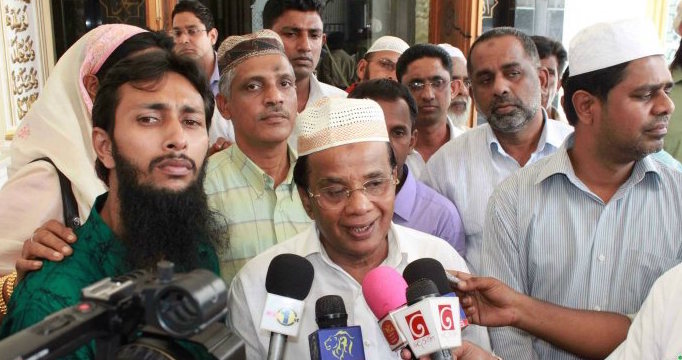


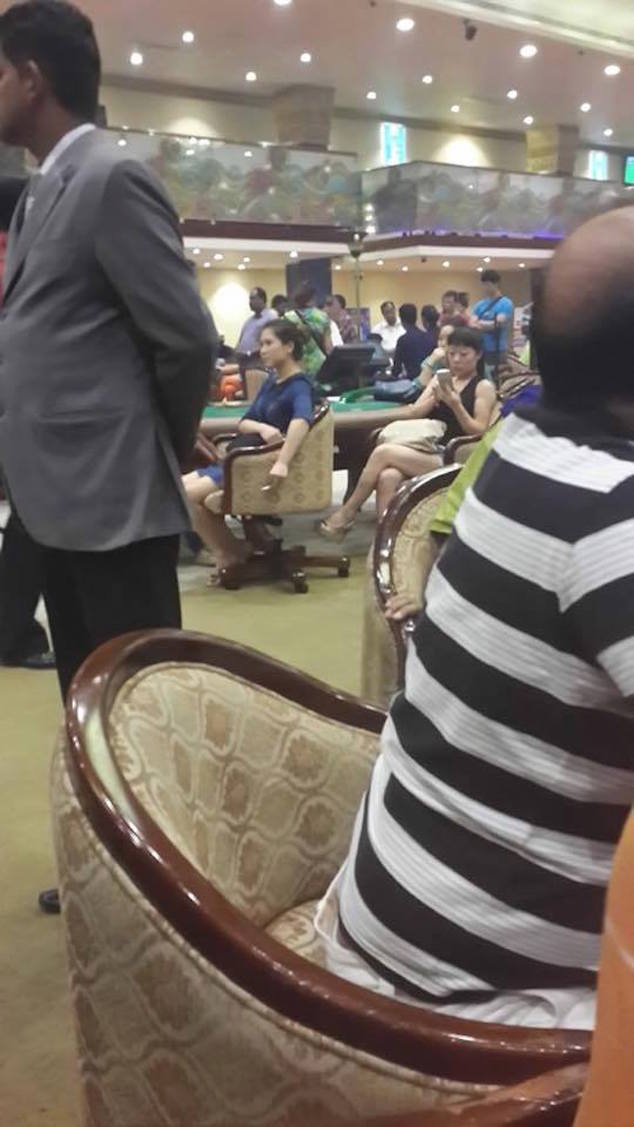

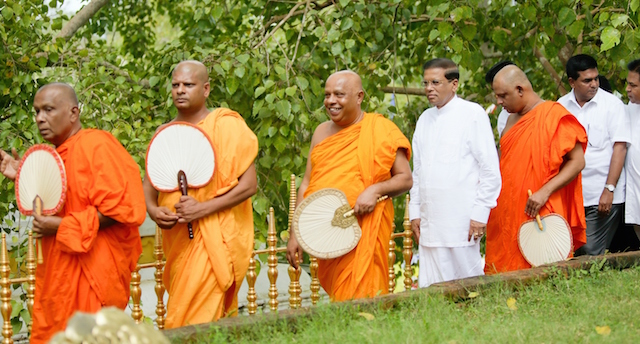 President Maithripala Sirisena could stand accused of entirely betraying the minority communities that ensured his victory at the Presidential election of January 2015. The 20A will get rid of the representation from parliament most of the minority parties who helped him reach the presidency. Many of these parties do not command a big enough voter base to win electorates but are sturdy enough to win representations in the districts. They fear that if 20A is implemented in its present kind, it would cement the two celebration rule. This may auger effectively as a nation to move away from ethnic primarily based politics, but, Sri Lankan electorate has been polarized along ethnic and religious lines. We want to go back to the days when the elected legislators represented all the folks and communities alike. This might not be the effortless following more than 35 years of ethnic/communal politics that was introduced under the JR Jayewardene constitutional reforms.
President Maithripala Sirisena could stand accused of entirely betraying the minority communities that ensured his victory at the Presidential election of January 2015. The 20A will get rid of the representation from parliament most of the minority parties who helped him reach the presidency. Many of these parties do not command a big enough voter base to win electorates but are sturdy enough to win representations in the districts. They fear that if 20A is implemented in its present kind, it would cement the two celebration rule. This may auger effectively as a nation to move away from ethnic primarily based politics, but, Sri Lankan electorate has been polarized along ethnic and religious lines. We want to go back to the days when the elected legislators represented all the folks and communities alike. This might not be the effortless following more than 35 years of ethnic/communal politics that was introduced under the JR Jayewardene constitutional reforms.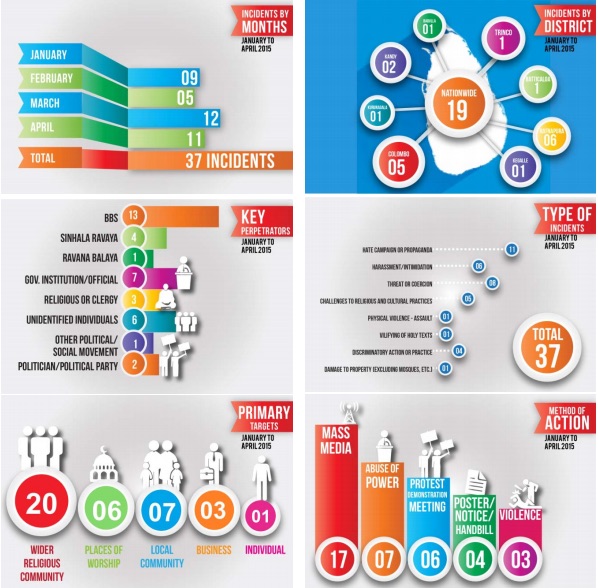 Over the last four months the Government has made a number of symbolic gestures and statements as to how this new Government differentiates itself from its predecessor, not just with regards to the hate campaign but also the ethnic conflict. President Sirisena has made repeated pledges and requests for a shift in the politics of this country, including at the SLFP convention on March 17 where he stated that the SLFP was “not a Sinhala Buddhist party” and for its members not to engage in racist politics. While the Government has yet to announce frameworks for addressing critical post-war issues, it has acknowledged the need for reconciliation. At the Independence Day celebrations, the President pointed out that “the biggest challenge we face today, is that of bringing together the minds of the people of the North and South, and through a process of reconciliation bring about co-existence and national understanding.”[1]
Over the last four months the Government has made a number of symbolic gestures and statements as to how this new Government differentiates itself from its predecessor, not just with regards to the hate campaign but also the ethnic conflict. President Sirisena has made repeated pledges and requests for a shift in the politics of this country, including at the SLFP convention on March 17 where he stated that the SLFP was “not a Sinhala Buddhist party” and for its members not to engage in racist politics. While the Government has yet to announce frameworks for addressing critical post-war issues, it has acknowledged the need for reconciliation. At the Independence Day celebrations, the President pointed out that “the biggest challenge we face today, is that of bringing together the minds of the people of the North and South, and through a process of reconciliation bring about co-existence and national understanding.”[1]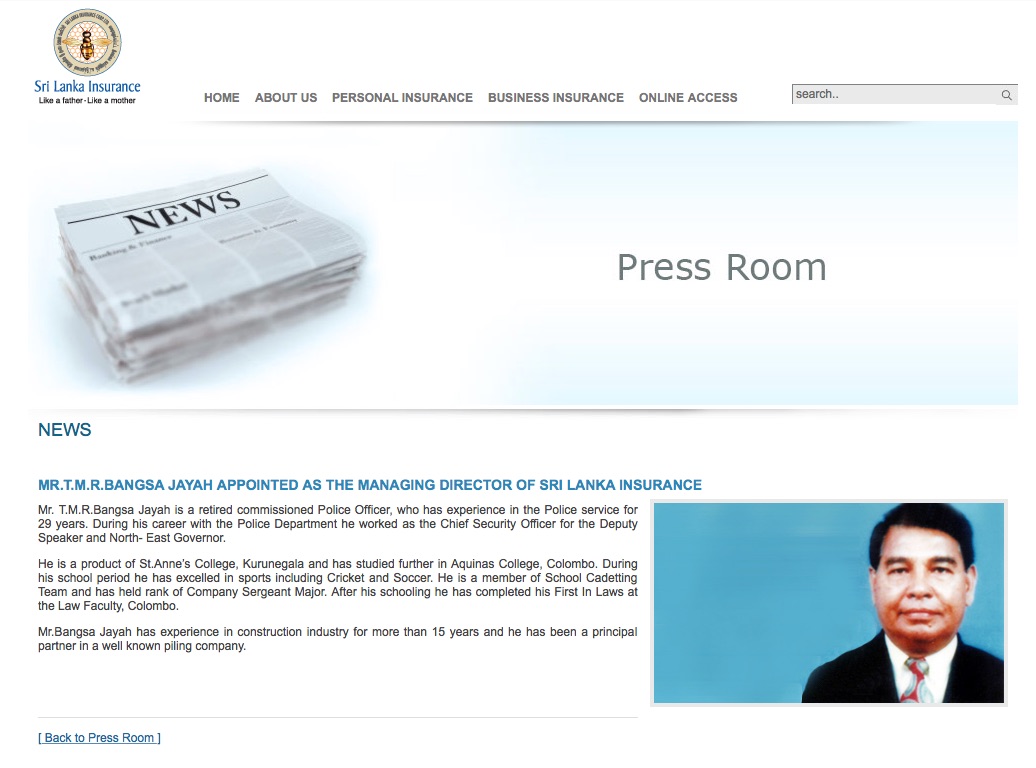 Sri Lanka Insurance coverage Corporation’s (SLIC) Managing Director Bangsa Jayah the former police sergeant and brother in law of the Finance Minister Karunanayake, was appointed to his post soon after the new government assumed energy. “I have practically nothing to do with it” the minister was quoted.
Sri Lanka Insurance coverage Corporation’s (SLIC) Managing Director Bangsa Jayah the former police sergeant and brother in law of the Finance Minister Karunanayake, was appointed to his post soon after the new government assumed energy. “I have practically nothing to do with it” the minister was quoted.
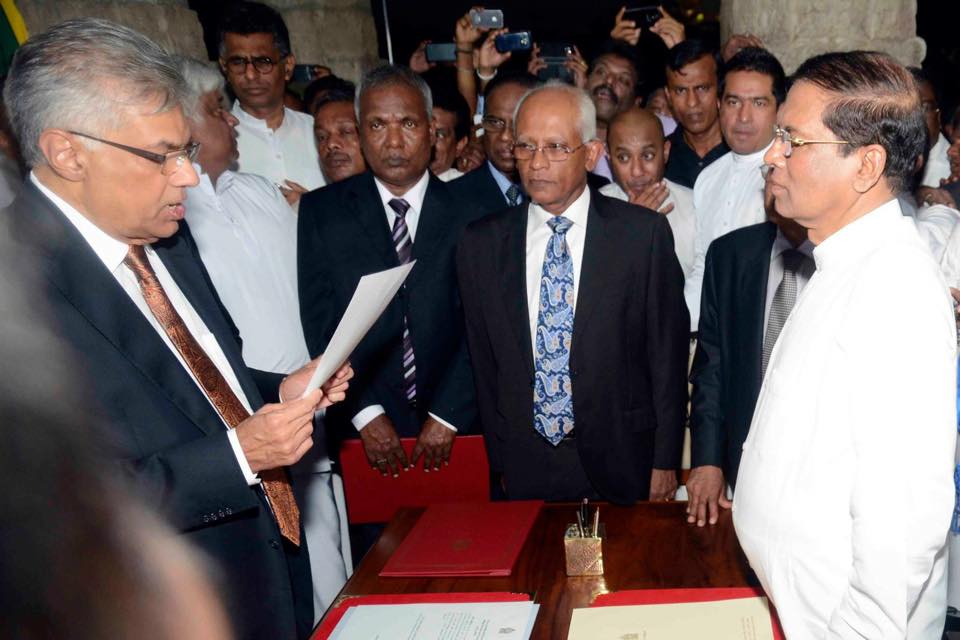 Prof Carlo Fonseka, in a recent article in The Island, has shown that the way in which President acted in the appointment of the Prime Minister and the removal of Chief Justice was undemocratic and contrary to the current rules and procedures. A single might argue that the appointment of the Prime Minister is constitutional as the constitution does not explicitly say that a individual who has the majority in the Parliament be appointed as the Prime Minister. Though the 19th Amendment was enacted by the Parliament, it seems that the way in which the President operates right now is not qualitatively various from the way in which the previous presidents had operated. The executive presidential program, despite the fact that offers huge and unchecked power to the elected President, she or he is bound to get the support of the Parliament as it has the power to pass monetary bills. Only brief-term confrontations can take place, either the President wins or the Parliament wins. What we have seen in the recent previous, especially under President Mahinda Rajapaksha, is that the President used both and carrot and stick in taming the energy of the Parliament for which the celebration mechanism was not sufficient. Party mechanism of the two principal parties had been developed following the executive presidential program. So President and the president/leader of the celebration to which s/he belongs have grow to be the same individual. Like Mahinda Rajapaksa, the current President, Maithreepala Sirisena is trying to sustain his hold on energy by throwing many types of bread crumbs to either silence the opposition or to win their support. The current appointments of minister from the SLFP and the appointment of SLFP stalwarts, Rathnasiri Wickramanayaka and DM Jayaratne as Senior Presidential advisors also demonstrates anti-democratic continuation of presidential system that legalize the method of bribes. Similarly, like Mahinda Rajapaksa, he has been trying to crush pro- MR components within the SLFP by employing his celebration presidency.
Prof Carlo Fonseka, in a recent article in The Island, has shown that the way in which President acted in the appointment of the Prime Minister and the removal of Chief Justice was undemocratic and contrary to the current rules and procedures. A single might argue that the appointment of the Prime Minister is constitutional as the constitution does not explicitly say that a individual who has the majority in the Parliament be appointed as the Prime Minister. Though the 19th Amendment was enacted by the Parliament, it seems that the way in which the President operates right now is not qualitatively various from the way in which the previous presidents had operated. The executive presidential program, despite the fact that offers huge and unchecked power to the elected President, she or he is bound to get the support of the Parliament as it has the power to pass monetary bills. Only brief-term confrontations can take place, either the President wins or the Parliament wins. What we have seen in the recent previous, especially under President Mahinda Rajapaksha, is that the President used both and carrot and stick in taming the energy of the Parliament for which the celebration mechanism was not sufficient. Party mechanism of the two principal parties had been developed following the executive presidential program. So President and the president/leader of the celebration to which s/he belongs have grow to be the same individual. Like Mahinda Rajapaksa, the current President, Maithreepala Sirisena is trying to sustain his hold on energy by throwing many types of bread crumbs to either silence the opposition or to win their support. The current appointments of minister from the SLFP and the appointment of SLFP stalwarts, Rathnasiri Wickramanayaka and DM Jayaratne as Senior Presidential advisors also demonstrates anti-democratic continuation of presidential system that legalize the method of bribes. Similarly, like Mahinda Rajapaksa, he has been trying to crush pro- MR components within the SLFP by employing his celebration presidency.
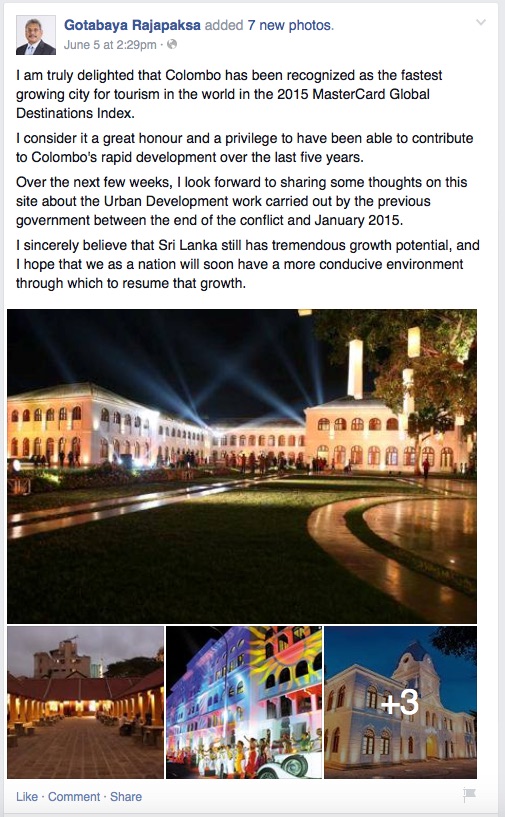 In his face book web page, the former defence secretary and the czar of the UDA trumpeted that he was ‘truly delighted’ to see Colombo getting recognized as the fastest expanding city for tourism in the Global Index of Mater Card whose vision statement is ‘A planet beyond Money ‘.
In his face book web page, the former defence secretary and the czar of the UDA trumpeted that he was ‘truly delighted’ to see Colombo getting recognized as the fastest expanding city for tourism in the Global Index of Mater Card whose vision statement is ‘A planet beyond Money ‘.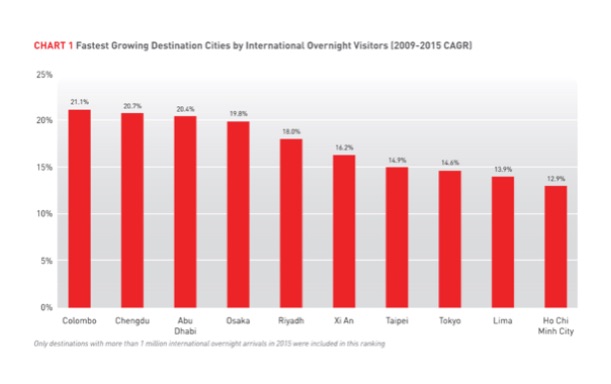
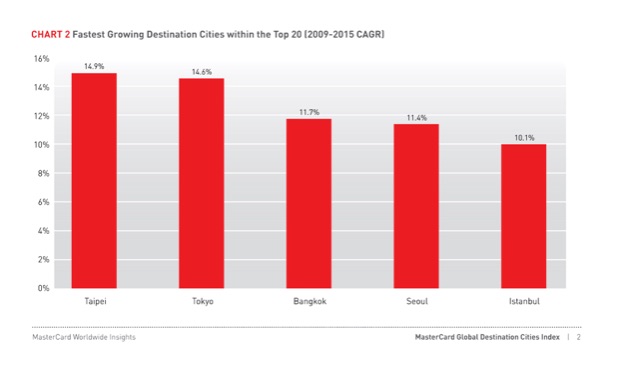

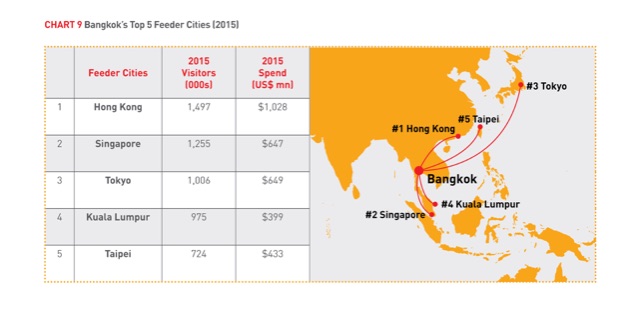
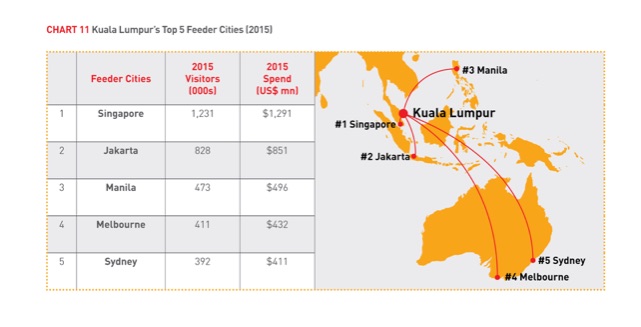
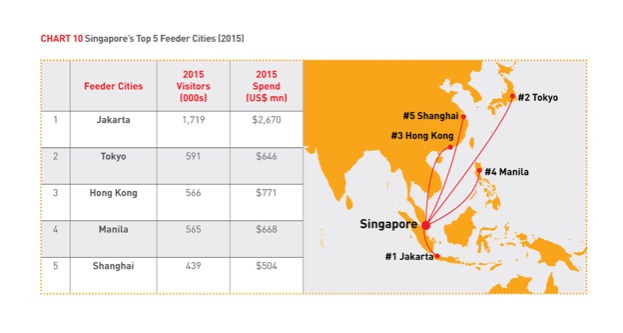
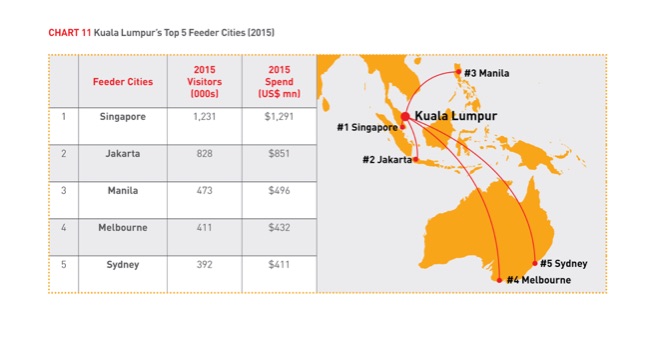 Our aviation market and the tourism sector does not wish to confront the truth. Each industries survive on self-deception and self-delusion. Our stewardesses serve free Moët & Chandon while our property maids earn the dollars that spend for them.
Our aviation market and the tourism sector does not wish to confront the truth. Each industries survive on self-deception and self-delusion. Our stewardesses serve free Moët & Chandon while our property maids earn the dollars that spend for them.
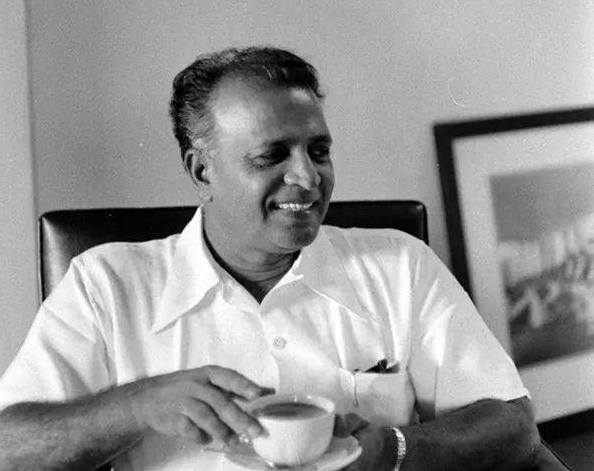 නව ලිබරල්වාදී සන්දර්භය තුල සමාජවාදය යලි අර්ථ කථනය කිරීමට චාවේස් ට සිදුවිණ. හේ එම නව අදහස හැදින්වුයේ 21 වෙනි සියවසේ සමාජවාදය නමිනි. මෙම 21 වෙනි සියවසේ සමාජවාදයේ ප්රධාන අංග ලක්ෂණ තුනක් චාවේස් දක්වයි. එනම්: (1) ආර්ථිකයේ පරිවර්තනය (2) දේශපාලන තලයේ සහභාගිත්ව සහ නිර්මානාත්මක ප්රජාතන්ත්රවාදය, (3) සියල්ලන් වෙත ආදරය, සහයෝගිතාවය සහ සමතාවය මත පදනම් වූ සමාජවාදී ආචාර ධර්ම ය. 21 වෙනි සියවසේ සමාජවාදය බොහෝ කරුණු අතින් සෝවියට් සමාජවාදයට වඩා වෙනස් විය. 21 වෙනි සියවසේ සමාජවාදය රාජ්ය දේපොළ පදනම්කරගත් මධ්යගත සැලසුම් ක්රමය ප්රතිකශේප කරයි. එමෙන්ම එය ප්රජාතන්ත්රවාදී විසම්මතය පිළිගනු ලබන දේශපාලන ක්රමයක් පිළිගනියි. පලදායිතාවය ඉහල නැංවීම 21 වෙනි සියවසේ සමාජවාදය සූත්රගත කරන්නේ හුදු ද්රව්යමය නිෂ්පාදනය ඉහල දැමීම නොව ස්වභාව ධර්මය සහ මානව නිර්මාණ ශක්තියෙහි වැඩිවීමකි. බෙදුන විසුරුණ බල ව්යූහයක් එය යෝජනා කරයි.
නව ලිබරල්වාදී සන්දර්භය තුල සමාජවාදය යලි අර්ථ කථනය කිරීමට චාවේස් ට සිදුවිණ. හේ එම නව අදහස හැදින්වුයේ 21 වෙනි සියවසේ සමාජවාදය නමිනි. මෙම 21 වෙනි සියවසේ සමාජවාදයේ ප්රධාන අංග ලක්ෂණ තුනක් චාවේස් දක්වයි. එනම්: (1) ආර්ථිකයේ පරිවර්තනය (2) දේශපාලන තලයේ සහභාගිත්ව සහ නිර්මානාත්මක ප්රජාතන්ත්රවාදය, (3) සියල්ලන් වෙත ආදරය, සහයෝගිතාවය සහ සමතාවය මත පදනම් වූ සමාජවාදී ආචාර ධර්ම ය. 21 වෙනි සියවසේ සමාජවාදය බොහෝ කරුණු අතින් සෝවියට් සමාජවාදයට වඩා වෙනස් විය. 21 වෙනි සියවසේ සමාජවාදය රාජ්ය දේපොළ පදනම්කරගත් මධ්යගත සැලසුම් ක්රමය ප්රතිකශේප කරයි. එමෙන්ම එය ප්රජාතන්ත්රවාදී විසම්මතය පිළිගනු ලබන දේශපාලන ක්රමයක් පිළිගනියි. පලදායිතාවය ඉහල නැංවීම 21 වෙනි සියවසේ සමාජවාදය සූත්රගත කරන්නේ හුදු ද්රව්යමය නිෂ්පාදනය ඉහල දැමීම නොව ස්වභාව ධර්මය සහ මානව නිර්මාණ ශක්තියෙහි වැඩිවීමකි. බෙදුන විසුරුණ බල ව්යූහයක් එය යෝජනා කරයි.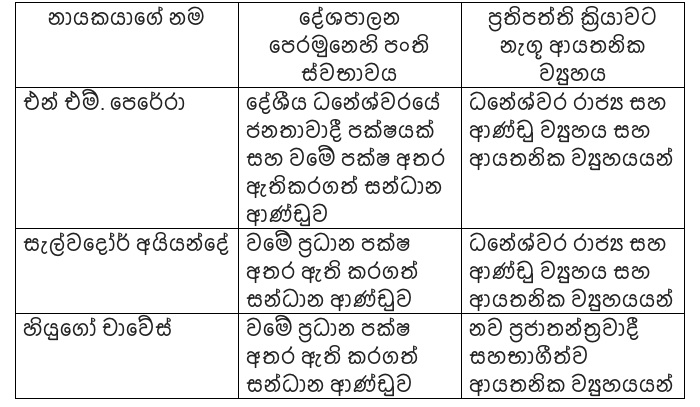 1960 ගණන් මුල ලංකා සමසමාජ පක්ෂයේ දේශපාලන මණ්ඩල සභිකයෙකු වූ හෙක්ටර් අභයවර්ධන Categories of Left Thinking in Sri Lanka නම් ලිපියෙන් ලංකා සමසමාජ පක්ෂයේ දේශපාලනය බරපතල වෙනසකට ලක් කලේ ය. මෙවන් ලිපියක් 1950 ගණන් වලදී ලීවේ නම් ආචාර්ය කොල්වින් ආර් ද සිල්වා එය පතුරු ගහන බවට මට සැකයක් නැත. මෙම ලිපිය ශ්රී ලංකා නිදහස් පක්ෂය පිළිබද ලංකා සමසමාජ පක්ෂයේ අදහස උඩු යටිකුරු කලේ ය. එන් එම් පෙරේරා තම නව අත්හදා බැලීම ට පදනම කර ගත්තේ මෙම ලිපිය ය. ශ්රී ලංකා නිදහස් පක්ෂය වැනි ජනතාවාදී පක්ෂ සමාජවාදී ගමනේ කිසියම් දුරක් යන්නේ නම් වමේ පක්ෂ එම ගමනට ආධාර කල යුතුවා පමණක් නොව එයට ජනතා තෙරපුම මගින් එම ගමන සපත කල යුතු ය. මෙම සන්දර්භය තුල ලංකා සමසමාජ පක්ෂය එතෙක් ගෙනගිය දේශපාලන ගමන් මග වෙනස් කොට ධනේශ්වර පක්ෂයක් සමග ආණ්ඩු පෙරමුණකට ගමන් ගත්තේ ය. 1970 සිට එම ආණ්ඩුව යම් යම් ප්රතිසංස්කරන කල බව සත්යයකි. එහෙත් එම ආණ්ඩුව කම්කරු සහ තරුණ සටන් මර්දනය කලේ ය. ලංකා සමසමාජ පක්ෂය ගැන සමාජයේ පහළ පන්තිවල තිබු අදහස ඉක්මනින් වෙනස් විය. ධනේශ්වර ශ්රී ලංකා නිදහස් පක්ෂය ට තව දුරටත් වමේ සහාය කරදරයක් ද විය. ලංකා සමසමාජ පක්ෂය ට ආණ්ඩුවෙන් අයින්ව යාමට කටයුතු සකස් වින. 1964 ශක්තිමත් පක්ෂයක් ලෙස ගිය ලංකා සමසමාජ පක්ෂය පෙරමුණෙන් පිටතට ආවේ දුර්වල වැහැරුන පක්ෂයක් ලෙස ය.
1960 ගණන් මුල ලංකා සමසමාජ පක්ෂයේ දේශපාලන මණ්ඩල සභිකයෙකු වූ හෙක්ටර් අභයවර්ධන Categories of Left Thinking in Sri Lanka නම් ලිපියෙන් ලංකා සමසමාජ පක්ෂයේ දේශපාලනය බරපතල වෙනසකට ලක් කලේ ය. මෙවන් ලිපියක් 1950 ගණන් වලදී ලීවේ නම් ආචාර්ය කොල්වින් ආර් ද සිල්වා එය පතුරු ගහන බවට මට සැකයක් නැත. මෙම ලිපිය ශ්රී ලංකා නිදහස් පක්ෂය පිළිබද ලංකා සමසමාජ පක්ෂයේ අදහස උඩු යටිකුරු කලේ ය. එන් එම් පෙරේරා තම නව අත්හදා බැලීම ට පදනම කර ගත්තේ මෙම ලිපිය ය. ශ්රී ලංකා නිදහස් පක්ෂය වැනි ජනතාවාදී පක්ෂ සමාජවාදී ගමනේ කිසියම් දුරක් යන්නේ නම් වමේ පක්ෂ එම ගමනට ආධාර කල යුතුවා පමණක් නොව එයට ජනතා තෙරපුම මගින් එම ගමන සපත කල යුතු ය. මෙම සන්දර්භය තුල ලංකා සමසමාජ පක්ෂය එතෙක් ගෙනගිය දේශපාලන ගමන් මග වෙනස් කොට ධනේශ්වර පක්ෂයක් සමග ආණ්ඩු පෙරමුණකට ගමන් ගත්තේ ය. 1970 සිට එම ආණ්ඩුව යම් යම් ප්රතිසංස්කරන කල බව සත්යයකි. එහෙත් එම ආණ්ඩුව කම්කරු සහ තරුණ සටන් මර්දනය කලේ ය. ලංකා සමසමාජ පක්ෂය ගැන සමාජයේ පහළ පන්තිවල තිබු අදහස ඉක්මනින් වෙනස් විය. ධනේශ්වර ශ්රී ලංකා නිදහස් පක්ෂය ට තව දුරටත් වමේ සහාය කරදරයක් ද විය. ලංකා සමසමාජ පක්ෂය ට ආණ්ඩුවෙන් අයින්ව යාමට කටයුතු සකස් වින. 1964 ශක්තිමත් පක්ෂයක් ලෙස ගිය ලංකා සමසමාජ පක්ෂය පෙරමුණෙන් පිටතට ආවේ දුර්වල වැහැරුන පක්ෂයක් ලෙස ය.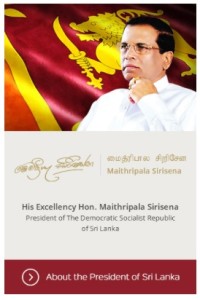 Also the cover web page of
Also the cover web page of 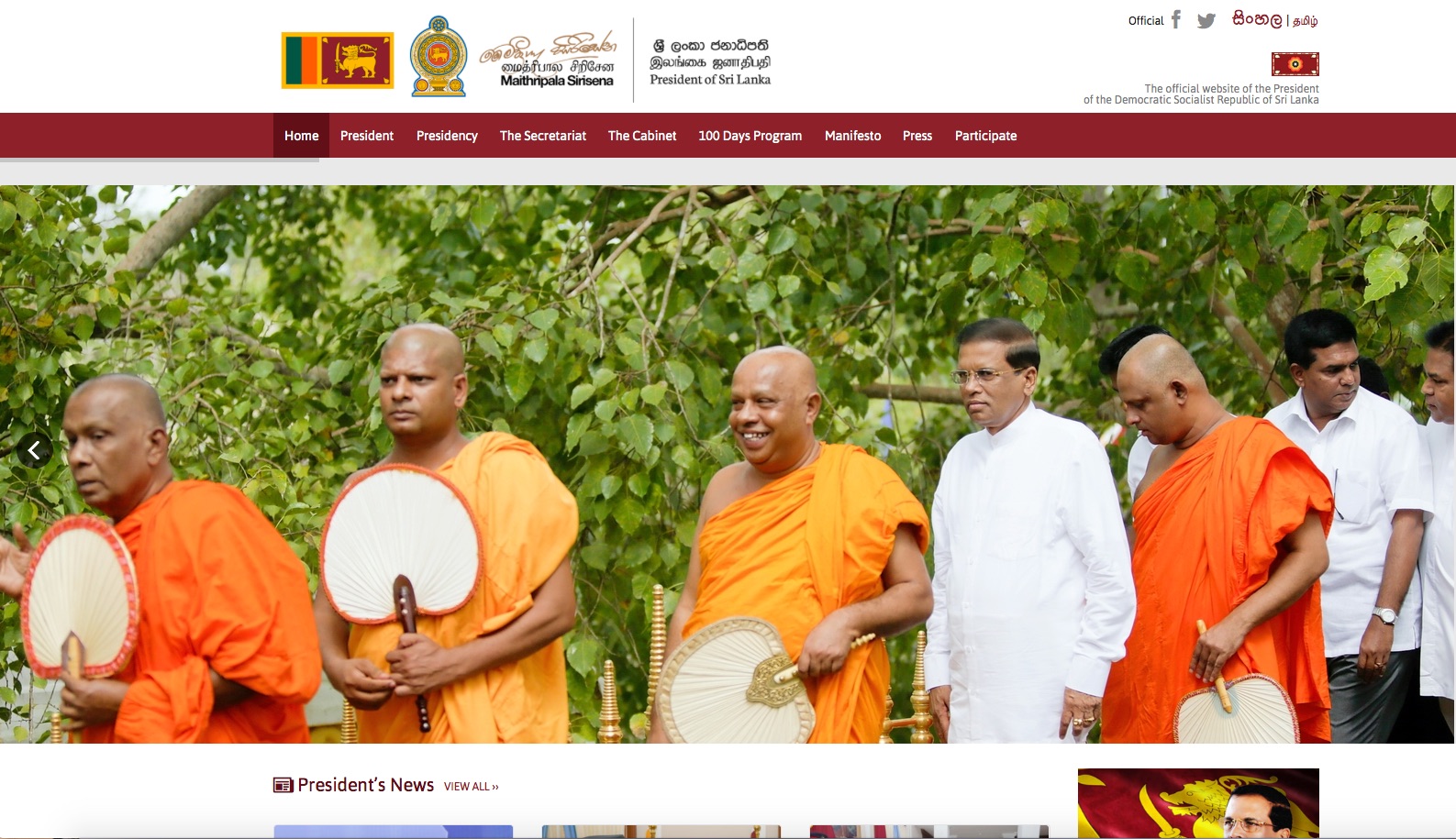
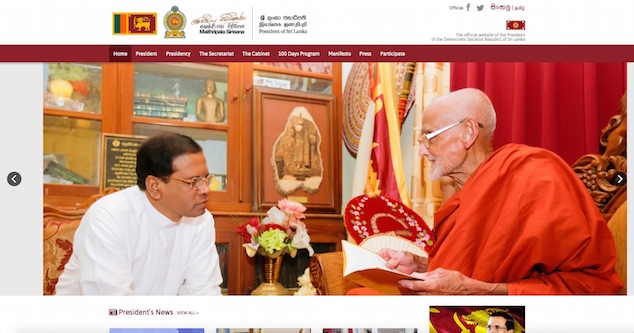
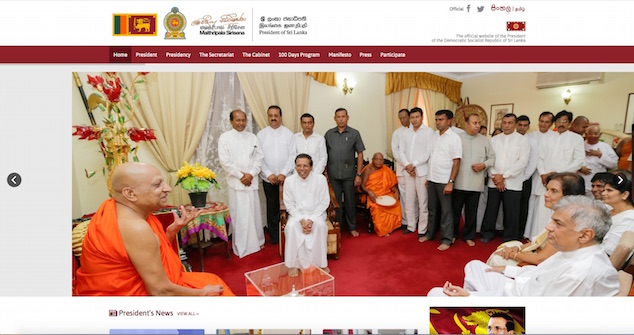

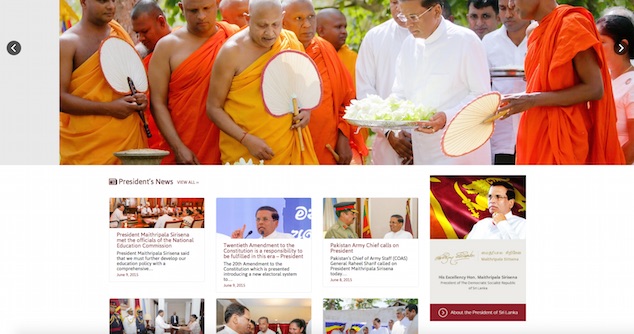
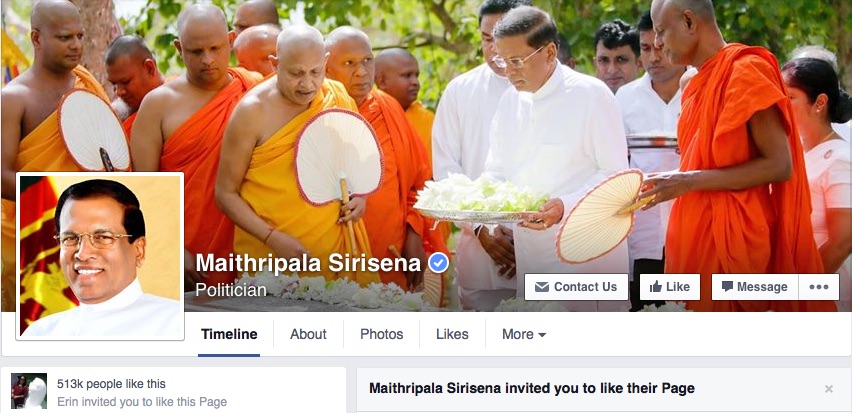
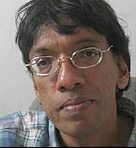
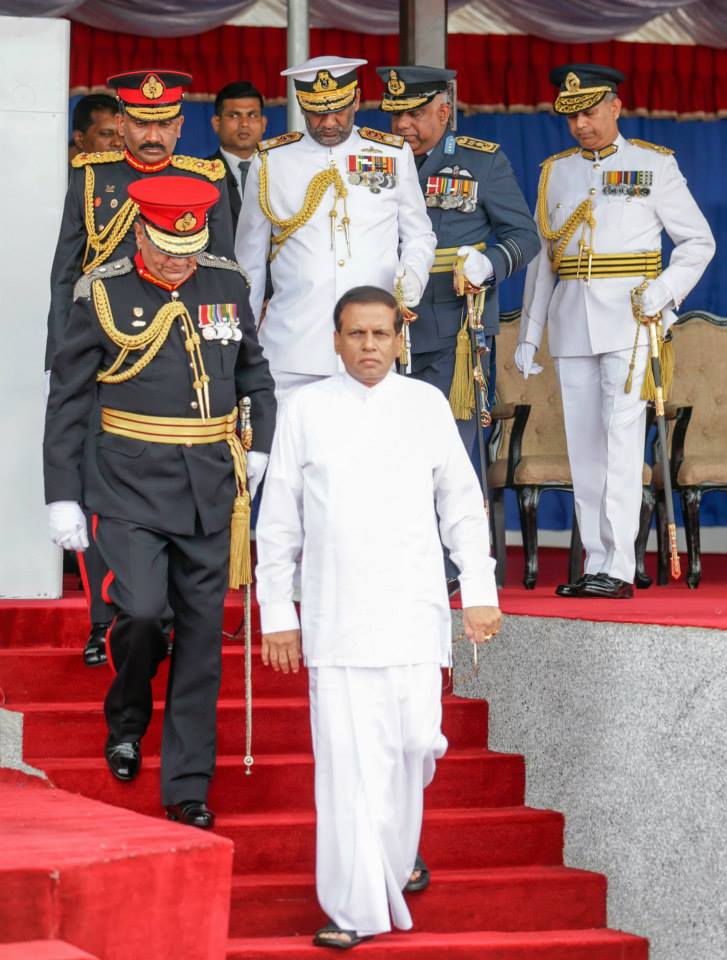 Unfortunately, with the passage of time the spirit of rivalry between the two principal political parties in the country has elevated, and not decreased, which tends to make the passage of the 20th Amendment much less probably. The UNP is concerned that the 20th Amendment will be utilised to delay the speedy dissolution of Parliament which was part of the President’s election manifesto. It is in the interests of the opposition to continue with the present parliamentary configuration for as long as achievable, and till April 2016 when the term of the present parliament lapses. This is on account of each their worry that they will not be a component of Parliament once more, and their hope that the present government becomes significantly less common with the passage of time. Their interest lies in obtaining the basic elections later rather than sooner.
Unfortunately, with the passage of time the spirit of rivalry between the two principal political parties in the country has elevated, and not decreased, which tends to make the passage of the 20th Amendment much less probably. The UNP is concerned that the 20th Amendment will be utilised to delay the speedy dissolution of Parliament which was part of the President’s election manifesto. It is in the interests of the opposition to continue with the present parliamentary configuration for as long as achievable, and till April 2016 when the term of the present parliament lapses. This is on account of each their worry that they will not be a component of Parliament once more, and their hope that the present government becomes significantly less common with the passage of time. Their interest lies in obtaining the basic elections later rather than sooner.